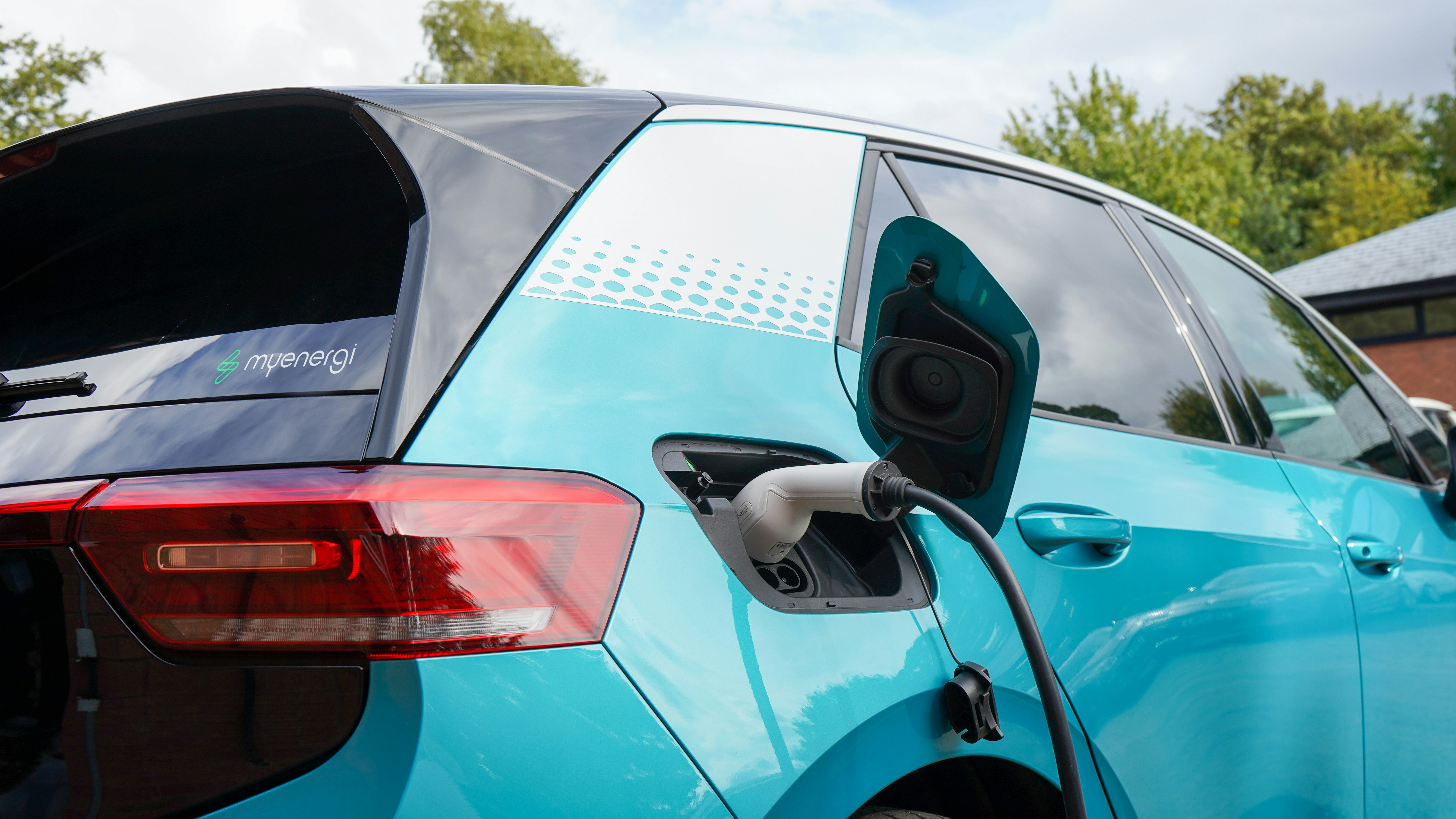The electric vehicle (EV) revolution is gaining momentum in the UK, with over 1.1 million fully electric cars and 655,000 plug-in hybrids on the roads. However, traditional petrol cars still hold a significant market share (55.7%) despite the 2035 ban. This can be attributed to the higher upfront costs of EVs and the patchy charging infrastructure across the country.
Enter hybrid electric vehicles (HEVs) and plug-in hybrids (PHEVs), offering a compelling solution in this transitional phase. HEV sales are growing at a steady 19.6%, while PHEVs are experiencing a surge of over 33% as of 2024. Surveys by JudgeService further reinforce this trend, with 34% of respondents indicating hybrids as their preferred choice for their next car.

Understanding the benefits of hybrids
A hybrid car comes with an electric motor and a combustion engine which can be used together or individually as well. Hybrid cars come with a lot of advantages making them a perfect start for the people who are still not completely sure about switching to fully electric cars. Here are some of the compelling benefits:
Enhanced Fuel Economy: Hybrid technology excels in delivering superior fuel efficiency compared to conventional gasoline or diesel-powered vehicles. This advantage stems from a combination of factors. Hybrids often utilise lightweight materials and aerodynamic design features to reduce overall weight and drag.
They charge on the go. The internal combustion engine drives a generator that recharges the battery as you drive. The battery is also charged using regenerative braking, which captures waste energy as the car slows down. They don't need to be plugged into a main to be recharged.
Additionally, their engines are typically smaller and more efficient, further contributing to lower fuel consumption. Perhaps the most significant factor is the electric motor's ability to propel the car independently or assist the gasoline engine, significantly impacting fuel economy, especially in stop-and-go traffic scenarios.
Reduced Maintenance Needs: Hybrid vehicles are often praised for their reduced maintenance requirements compared to traditional gasoline-powered cars. Their design incorporates fewer moving parts, particularly when considering the regenerative braking systems that capture energy during deceleration. This translates to fewer components susceptible to wear and tear, leading to lower overall maintenance costs over the vehicle's lifespan.
Strong Resale Value: Hybrid cars tend to retain their value better than gasoline or diesel vehicles. This phenomenon can be attributed to several factors. Consumers increasingly prioritise fuel efficiency and environmentally friendly options. Additionally, the lower maintenance requirements associated with hybrids make them more attractive propositions in the used car market. Depreciation is inevitable, but a hybrid car's higher fuel mileage and lower maintenance costs typically translate to a stronger resale value when the time comes to sell.
Cost savings and incentives for hybrid owners
Hybrid drivers enjoy significant financial perks thanks to government incentives and tax breaks.
Vehicle Excise Duty (VED) Savings: Hybrid owners pay lower initial vehicle registration fees (up to £100 less) and reduced annual VED road tax (up to £200 less per year) compared to petrol/diesel variants.
Company Car Tax Benefits: Under the UK government's emissions-based company car tax (Benefit-in-Kind or BIK) rules, hybrid owners benefit from a reduced monthly tax rate. For the 2021/22 financial year, this ranged from just 5% BIK tax for electric hybrids to 8-19% for plug-in hybrids.
Charging infrastructure for hybrids
A Judge Service survey revealed that 58% of people are hesitant about EVs due to a lack of charging points. Hybrid is practical solution since it doesn't rely heavily on a developed charging network. Here's why hybrids are a compelling choice in the current landscape:
Hybrids have dual power sources: They have a gasoline engine and an electric battery. The gasoline engine can take over when the battery depletes, eliminating range anxiety (fear of running out of charge) associated with pure EVs.
Charging needs are for shorter distances: Hybrid batteries typically have a lower electric range (20-50 miles) compared to EVs. So, home charging or workplace charging is often sufficient for daily commutes.
The UK government's ambitious target of 300,000 charging points by 2030 will benefit both pure EVs and hybrids.
Hybrid as a Transition Technology
Compared to conventional gasoline cars, hybrids offer improved fuel efficiency and reduced greenhouse gas emissions, especially when driven frequently on electric power.
Hybrids can utilise existing gasoline station infrastructure, unlike EVs which rely heavily on charging networks.
Since hybrids share some technology with traditional cars, it's a familiar and potentially less risky investment for automakers when compared to completely new EV platforms.
Hybrids can help familiarise consumers with electric vehicle technology and address range anxiety concerns, paving the way for wider EV adoption.
Popular hybrid models on the market
There are many popular hybrid models available in the UK market as of 2024 from various automakers. Here are some of the top-selling and well-regarded hybrid cars in the UK:
1. Toyota Corolla Hybrid: Known for its exceptional fuel efficiency and reliability, the Toyota Corolla Hybrid is a great choice for everyday driving. It offers a spacious interior and comfortable ride.
2. Ford Kuga Hybrid: This stylish and practical SUV from Ford comes with a variety of powertrain options, but the hybrid version is a great choice for those who want a balance of performance and fuel efficiency. It also offers a good amount of cargo space.
3. Hyundai Tucson Hybrid: Another popular option in the SUV segment, the Hyundai Tucson Hybrid offers a good balance of features, fuel economy, and value for money. It has a comfortable interior with plenty of space for passengers and cargo.
4. Kia Niro Hybrid: The Kia Niro Hybrid is a crossover SUV that is known for its comfortable ride, spacious interior, and long warranty. It also offers a good range of standard features.
5. BMW 330e: This sporty sedan from BMW offers a blend of performance and efficiency. It has a well-handling chassis and a comfortable interior. The BMW 330e is a great option for those who want a premium hybrid car.
Conclusion
Overall, hybrids act as a stepping stone towards a more electrified future. They offer a middle ground, allowing for a smoother transition to EVs while still providing environmental benefits. As battery technology advances and charging infrastructure expands, hybrids may eventually be phased out in favour of fully electric vehicles. But for now, they play a valuable role in accelerating the shift towards a cleaner transportation landscape.

Did you enjoy this blog post? Subscribe to our email list to be notified of when we upload new content! We won't send you any other communications other than blog post updates!

